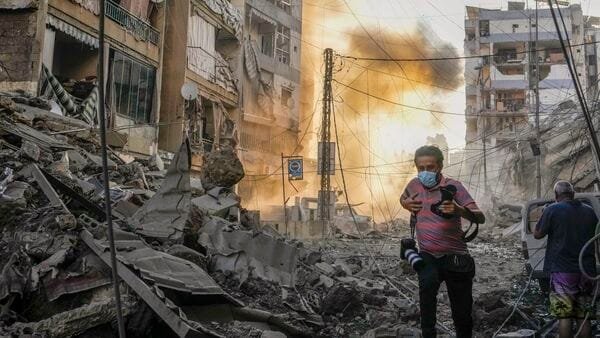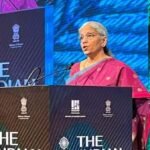Israel’s ambassador to India Reuven Azar said on Friday that it’s up to India to decide “what’s their role going to be” in the ongoing conflict between Israel and Iran-backed Hezbollah in Lebanon. He, however, added, “India is playing a very important role in our region.”
In an interview with Firstpost, Azar said he believes “what India is offering the region is actually to be grabbed by the countries of the region because India is a rising power.”
“India is becoming one of the most important economies of the world. India has a lot of things to offer to our region in trade, manufacturing, commercialization, innovation, and cooperation, and therefore, many countries in the region are eager to engage with India to create a better future for us all,” Azar said.
When asked if India has asked Israel to accept any ceasefire deal, Azar said, “India hasn’t been involved in offering a specific ceasefire deal.” Last month, the US and France had called for a 21-day temporary ceasefire in Lebanon as Israel and Iran-backed militants Hezbollah continued to exchange heavy firing. Israel had then said it welcomed diplomacy on Lebanon but did not commit to a ceasefire.
Tensions escalated between Israel and Iran-backed Hezbollah ever since pager and walkie-talkie explosions attacked Hezbollah in Lebanon. Thos was followed by Iran launching a barrage of missiles towards Israel. US president Joe Biden recently said, “I don’t believe there is going to be an all-out war. I think we can avoid it.”
How India reacted?
Earlier this week, India’s External Affairs Minister S Jaishankar said that India is “very much” concerned at the possibility of broadening of the conflict in the Middle East. He was speaking at the conversation at the Carnegie Endowment in the US.
When asked about India’s approach towards Israel’s policy and wider conflict possibilities, Jaishankar said, “If one looks at the current situation, I think it would be right to start off with October 7th. We regard October 7th as a terrorist attack.”
“We understand that Israel had a need to respond, but we also believe that any response by any country has to take into account international humanitarian law, that it must be careful about any damage or any implications for civilian populations. And that given what has happened in Gaza, it is important to have some kind of international humanitarian effort out there,” Jaishankar said.
He raised concerns over the possibility of a broadening of the conflict, saying that, “…not just what happened in Lebanon, but also, you know, I referred earlier to the Houthis and the Red Sea, and, you know, to some extent, everything that happens between Iran and Israel.”
Notably, India has backed a two-state solution to the Israel-Palestine conflict. PM Narendra Modi was one of the first global leaders to condemn the terror attack on Israel by Hamas on October 7. However, India has repeatedly expressed concerns over the deteriorating situation in Gaza.
The Ministry of External Affairs recently issued a statement on the evolving situation in West Asia, saying, “We are deeply concerned at the escalation of security situation in West Asia and reiterate our call for restraint by all concerned and protection of civilians.”
“It is important that the conflict doesn’t take a wider regional dimension and we urge that all issues be addressed through dialogue and diplomacy,” the statement added.
(Press the bell 🔔 Icon, for all latest updates)




